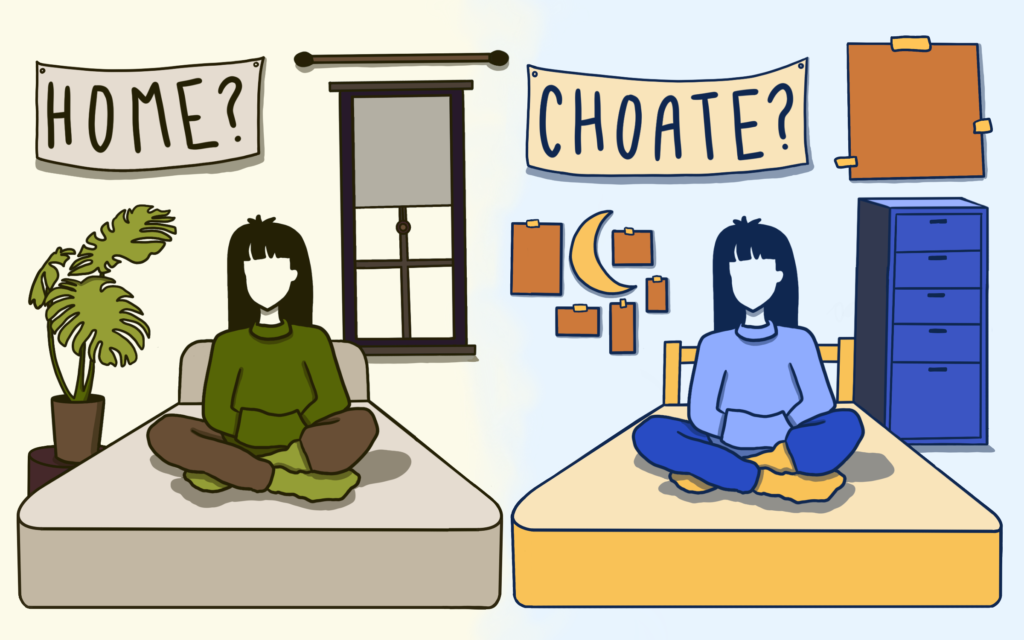
Graphic by Yujin Kim/The Choate News
Because of the rising numbers of Covid-19 cases in Connecticut and across the country, the many hospitals at or near capacity, and the emergence of a new, more contagious strain of the virus, Choate delayed students’ return to campus from January 3 to the weekend of January 29.
The administration also announced that the School will be implementing a boarding-only model — all students will either live in a dorm or remain remote learners for the rest of the winter term, giving day students the opportunity to convert to boarding status.
“We looked at a variety of models, and from the perspective of health and safety, we felt that if we could create a bubble, it would be the best model for us to pursue,” said Dean of Students Mr. Mike Velez ’00.
Because many boarding students chose to remain remote for the winter term, the School will have enough beds to accommodate the number of day students who opted to board on campus. A survey for housing preferences and personal details, such as allergies and dietary restrictions, was sent to day students who chose to board. Once the Deans’ Office announces housing assignments, programming will be offered for new boarders to learn what to expect in residential life.
Additionally, house advisers will hold dorm meetings prior to reopening so day students can familiarize themselves with their dorms. Day student advisers will also connect with residential advisers to continue supporting day students throughout this process.
Because many day students are transitioning to boarding status, day student prefects also have the opportunity to join the team of boarding prefects in the dorms as an additional in-house resource for students. This option will be available in every dorm in which a prefect is remote for the winter term.
The decision of whether to become a boarding student has not been an easy one for many day students. Some recalled tough choices they had to make earlier this year, such as when day students from towns with high Covid-19 positivity rates had to decide whether to become remote learners or quarantine from their families at home while continuing to take classes in-person.
“The decision to board was a tough choice because it was pretty short notice and we only had a few weeks to really think about it,” said Maya Chiravuri ’23. “It was a good choice for me because I do orchestra and athletics, which are both really hard to participate in remotely.”
Chiara Vessicchio ’22 echoed that sentiment: “I only live a mile away from campus, but I’m excited to be boarding after being a day student for the past two years. Everything feels so rushed and last minute, though; I still don’t know any details of my move-in and living situation.”
Those who chose not to board, such as Cory Williams ’23, expressed concerns for their safety and disappointment in the way the administration handled the situation. “I am disappointed that I can’t be with my friends,” said Williams. “I wish I could return to campus. However, I believe I made the right decision to not board because of the increasing risks.”
Kayce Madancy ’22 said, “I think Choate is trying to control too many things. I understand they are trying to keep everyone safe, but making day students decide whether to board or remain virtual puts students in a tough spot.”
Still, many students have expressed gratitude for the chance to physically join the campus when possible. “As a new third former, I feel lucky that I have three years ahead of me to enjoy a full Choate experience,” said Elsa Franks ’24. “However, I know that my prefects and other older students are having their last months stripped away from them. From the two months I had on campus, I was in awe of the positive outlook that the Choate community had. Instead of complaining about not having enough time, we all hope to enjoy the time we do have.”


